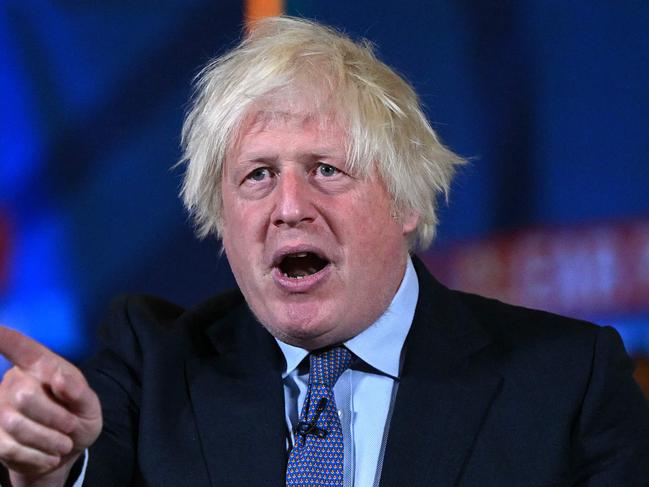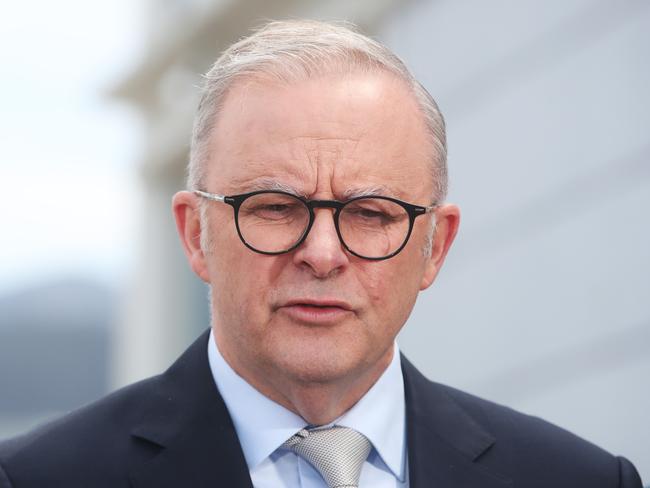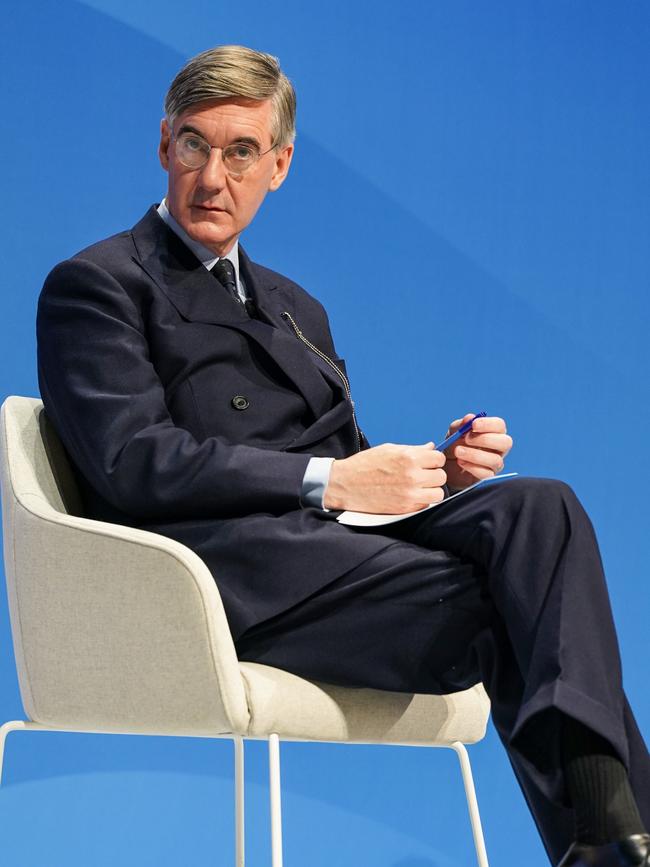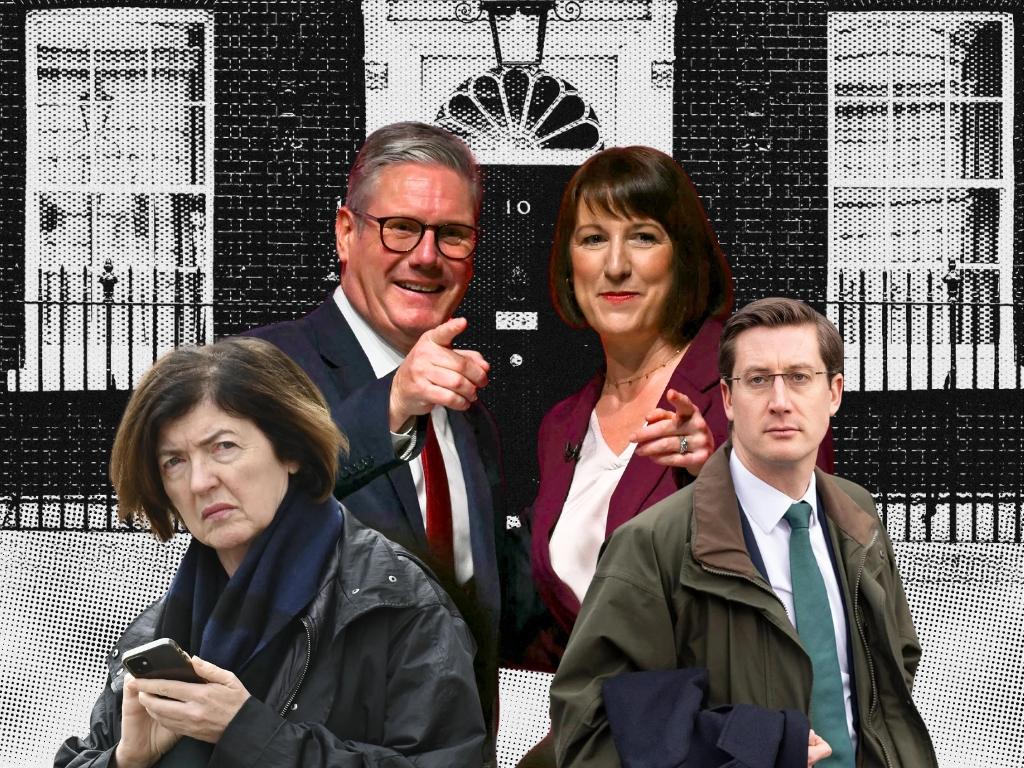Keir Starmer has had a magical first 100 days ... black magic, that is
British Prime Minister Sir Keir Starmer’s victory suggested, misleadingly, Princess Di popularity. Within a minute he sank to Prince Harry unpopularity, and seems headed to Prince Andrew territory.

Mired in scandals, leaks against internal enemies, chaos at No.10 Downing Street, sleaze, sackings, broken promises, it’s as big a mess as Boris Johnson’s Conservatives were at the end of 14 years. To paraphrase one wag, Starmer won a victory that suggested, misleadingly, Princess Di popularity. Within a minute he sank to Prince Harry unpopularity, and seems headed to Prince Andrew territory.
It’s frankly astounding. Actor Stephen Fry, lion of the cultural left, describes Labor’s first 100 days as “preposterous and disastrous”.

Writing in the pro-Labour Guardian, historian Anthony Seldon, renowned biographer of every prime minister since John Major, commented: “No Labour government since 1945 has so badly bungled its Downing Street operation in its first 100 days in power” and “Senior figures across Whitehall and Labour worry that Starmer doesn’t understand how to operate as Prime Minister, and seems unwilling or unable to learn”.
These are not judgments from Labour’s enemies. Laura Kuenssberg of the BBC writes: “One source told me it was abundantly clear there was an election plan, but there was no plan for government.” Kuenssberg also thought there were some positives.
Beth Rigby, political editor of Sky News UK, in her piece on Starmer’s first 100 days, noted that the Prime Minister’s personal approval ratings had fallen to minus 33, a staggering drop of 44 points since just after the election. She noted polls now had Labour just 1 per cent ahead of the Conservatives, a remarkable loss of support for a new government.
Half those who voted Labour feel let down, while 60 per cent of voters disapprove of the government’s performance. Its positive approval rating barely makes double digits.
The Starmer government’s disastrous start can be explained by specific mistakes from an inexperienced and probably incompetent and divided party with little real idea how to confront Britain’s pressing policy problems. But it also raises systemic issues.
All major Anglophone countries are now governed by centre-left parties, except New Zealand.
They’re all in trouble. Justin Trudeau’s Canadian government is intensely unpopular and headed for electoral defeat, though it has been in government so long it can’t be considered a political failure. If Kamala Harris loses to Donald Trump, it will be two one-term presidencies, with a change of party, in a row for the US, which has never happened since World War II. Even before his disastrous debate performance against Trump, Joe Biden’s approval numbers were woeful, and a large majority of Americans think their nation is not heading in the right direction but travelling the wrong track.
In Australia, the Albanese government is now behind in the polls. It has no convincing agenda for economic growth or productivity improvement. It seems headed for minority government at best, though of course elections are inherently unpredictable.
And now Starmer’s government has fallen in a heap in dazzling speed.
So here’s the question: is this a new crisis for the centre left? Or is there a more general malaise in Western politics? Or are these just incompetent governments and mediocre politicians?
Electorates are more demanding than ever, afford new governments a honeymoon of about five minutes, are deeply cynical about politicians, and their politicians often – it must be said – justify the cynicism.
Every Western society is deeply divided. Men vote Trump, women vote Harris. Older folks vote conservative, younger folks vote left. The push for equity, diversity and inclusion, and for reconciliation in Australia, has thrust race and grievance into the heart of politics with no compensating benefit.
Beyond that, Covid incubated profoundly destructive habits. It’s almost impossible to improve productivity when workers refuse to come to the office. The British government had been insisting new civil servants would have to spend at least 60 per cent of their time in the office, now it seems 40 per cent will be OK. Nobody in the real world could possibly imagine such arrangements enhance productivity.
Centre-left governments pay off public sector unions, which means unsustainable pay rises, crippling industrial relations over-regulation and indulgences such as work from home. Covid has popularised two dreadful fallacies – that governments have endless pots of money and that, whatever happens, governments can look after people’s every need by spending more money.
These destructive fantasies initially play to centre-left politics with its natural stress on government spending, but pretty quickly it becomes clear such policies don’t deliver economic growth or national purpose. They tend to impoverish a society and to demoralise it.
Still, the Starmer fall from grace has been startlingly sudden and comprehensive.
As Marxists might say, the general malaise in Western electorates is the “objective” circumstance, the Starmer government’s performance is the “subjective” factor. Or, to further quote Marxists, the Starmer government is caught up in its own contradictions.
So what are the key points of the Starmer troubles?
They are many and various but can be grouped under five main headings: sleaze, vicious internal fights through savage kinetic leaking, sheer incompetence, broken promises and lack of narrative.
The sleaze factor is the most unpredicted of all. Stylistically, Starmer is no Johnson. Bojo was the king of entertainment, in his way a once-in-a-generation political talent. He was high reward/high risk. The downside was a boisterous style and lack of self-discipline.
Starmer seemed the very opposite. His biographer was going to call his book The Unpolitician. When asked, Starmer said he didn’t have a favourite novel or a favourite poem. He had been the director of public prosecutions and spoke in that constipated, pedantic, sombre, weighted way of a Civil Service lawyer. He looked serious, reliable, honourable, regular, dependable.
Though some were shocked, none was surprised when it emerged that Johnson solicited big donations to pay for the refurbishment of his prime ministerial flat. Starmer was not like that. Starmer railed against Johnson’s self-indulgence. Starmer stood for “moral socialism”.
How utterly astonishing, then, that it turns out Starmer, since 2019, has taken more than £107,000 ($208,000) in personal gifts from a wealthy Labour donor, Lord Waheed Alli.
More than £16,000 of this was for clothes – flash suits – for Starmer. More than £2000 was for specs. More than £5000 was for high-end clothes for Starmer’s wife, Victoria.
This was more than 2½ times more than the money value of gifts taken by any other politician. It then emerged that Chancellor Rachel Reeves and Deputy Prime Minister Angela Rayner had also taken lavish gifts of clothes and accommodation.
Alli was given an “access all areas” security pass for No.10. Starmer also took £20,000 worth of accommodation in one of Alli’s luxury flats, ostensibly so his son could study, undisturbed, for his GCSE (Year 10) school exams.
When this first came out, Starmer was highly defensive: “I won’t apologise for not having done anything wrong.”
Some senior Labour figures, especially Dame Harriet Harmon, publicly told him he was making things worse by his constant defensiveness. Eventually Starmer announced that he and other ministers would no longer take clothes, or presumably accommodation, as gifts. He paid back £6000 of his own gifts and promised new guidelines.
On top of this, it was shown that Starmer accepted many thousands of pounds worth of gifts of tickets to top-line concerts. Recently he was revealed as receiving £4000 worth of tickets to see Taylor Swift, whom he went out of his way to meet personally. The government also gave the performer a royal family level of security escort.
None of this, it ought be stressed, involves corruption or illegal behaviour by Starmer. But it’s like discovering Bambi had a vodka problem or Mother Teresa took holidays in a luxury spa on the French Riviera. It shakes your faith in human nature.
For the champion of “moral socialism”, it’s a devastating look.
The parallel with Anthony Albanese’s $4.3m beach house is obvious. Albanese is even more innocent than Starmer. But so was Scott Morrison when he paid for modest Jetstar tickets to take his family on a short holiday in Hawaii when the nation was suffering bushfires.

Politicians of left and right use the language of moral purpose and solidarity. The public overreacts if they are ever seen indulging themselves. If there’s an obvious gap between their words and behaviour, it’s a killer.
For Starmer, whose very tone of voice is sententious, who excoriated Johnson for every personal failing, to be taking £100,000 of personal gifts from a plutocrat is not only odious but calls into question his judgment at every level.
Starmer was the director of public prosecutions before going into parliament. His wife is a successful lawyer. They have two children. Did he really need a sugar daddy to buy his suits?
And all this was revealed just after the government announced it would be cutting pensioners’ winter fuel allowances.
That was all bad enough. The Downing Street infighting was equally weird.
Starmer went to enormous lengths to get Sue Gray, the senior civil servant who made a damning judgment on Johnson’s personal conduct during Covid, as his chief of staff. He needed someone who understood deeply how government worked.
But Gray had little affinity for the Labour movement. From the first day there were ferocious turf wars as the political types resisted her and she resisted them. Seemingly every side leaked furiously against the other, from the first days of government.
So Starmer sacked Gray, though this was sold as her moving to a nebulous new role as his ambassador to regions. A political fixer, Morgan McSweeney, becomes chief of staff instead. Again, where was Starmer’s judgment or management ability?
Broken promises were just as damaging. Starmer promised no tax increases on working people. He never foreshadowed the pension fuel-allowance cuts. Reeves claims to have found a £22bn budget black hole (the oldest trick for any new government), yet everything about Britain’s fiscal position was abundantly clear before the election. So now the government, in its October 30 budget, plans to increase the employer contribution to National Insurance. This ultimately hits take-home pay. Labour never said anything about this during the election.
Having, like Albanese, run a very small-target campaign in opposition, Starmer has no mandate for the difficult choices he’s confronted with.
Like most centre-left leaders, Starmer indulges public sector unions, giving big pay rises to train drivers and National Health Service workers. People see this as Labour favouring political allies.
The lack of a narrative is also crippling. Like centre-left parties around the world, Starmer’s Labour Party has no coherent idea about how to lift economic growth or productivity. Like other centre-left parties, its total repertoire of ideas seems to be identity-politics gestures, tax increases, heavy regulation of industrial relations, costly green schemes that drive up energy prices, and ever more transfer payments.
It’s still a mystery that a government could fall this far, this fast. To get a readout on why, I asked one of the shrewdest participants in British politics, former Conservative minister Jacob Rees-Mogg. Obviously, he’s a political opponent of Labour, but his professional political judgments are telling nonetheless.

“I’m mystified at how they managed to do so badly, so quickly,” Rees-Mogg tells me in a long telephone conversation.
“All they had to do was be routinely competent. They haven’t recognised things as problems as they arise, such as the gifts. And it turned out Starmer had taken more than anyone else.
“They went to great lengths to get Sue Gray, then didn’t back her. You’ve got Downing Street briefing against itself, which normally happens very late in a government. They gave big pay rises to train drivers as they took money from pensioners. Starmer seems obsessed by Taylor Swift, which is very strange for a grown man.
“Then they had no idea what they wanted to do in government. Starmer was the beneficiary of Conservative unpopularity rather than any popularity of his own. I think it’s clear that Starmer’s just not up to it, which is a surprise.
“All he had to do was be boring and steady and deliver what he promised.”
Rees-Mogg is not taking Labour’s misfortune as redemption for the Conservatives: “Labour is not popular but neither are we. We’ve got to rebuild trust, which is very difficult. Nigel Farage (the Reform UK party leader and Brexit campaigner who split the conservative vote) is still there.”
Starmer has a huge parliamentary majority and more than four years of his term to run. He has every chance to rebuild. Yet his authority in cabinet and party is already severely eroded.
His disastrous beginning could signal a continuation of political instability, ineffective government and alienation in Britain, even in due course leadership tensions and, if both main parties remain disliked by the electorate, a dangerously fragmented politics.
Sound familiar? Keir Starmer, meet Anthony Albanese.





British Prime Minister Sir Keir Starmer has had a magical first 100 days. Black magic, that is. After a sweeping electoral victory in July, with a near record parliamentary majority, his government in its first three months has been the most chaotic, dysfunctional, disorganised, disunited of any newly elected administration since World War II.